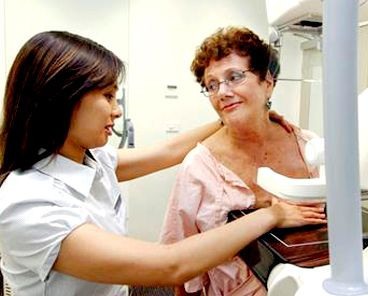Scientists Find Why Breast Cancer Differs In Older Women

Observations that women over 70 have a different type of breast cancer than younger women has been for some time known because the cancer tends to be less aggressive in the older population. But until now researchers did not know why this happened.
"As age advances breast cancer appears to change its biological characteristics, but we still don't know enough about the precise differences between older and younger patients," says study leader Kwok-Leung Cheung of the School of Graduate Entry Medicine and Health at the University of Nottingham.
One third of all breast cancers occur in women over 70. Women who are diagnosed in this age group tend to have other illnesses and don't usually die from their cancer. Biologically, older women tend to have breast cancers that behave differently and are called low estrogen receptor luminal.
There is a lack of data about breast cancer in older women, leading to an empty space in how the disease differently affects women of disparate ages.
Mr Cheung said: "Given this lack of data, our study is unique and important for being a large series from a single centre, characterising breast cancer specifically in older women, correlating the biology with long-term clinical outcome and also comparing them with the younger series from the same unit."
Researchers analyzed biological samples of breast cancer tumors removed from women between the years 1973 and 2009. Samples from 1758 women over the age of 70 were examined for the presence of biomarkers known to be related to cancers in general and specifically to breast cancer. They found that showed six biological markers expressed in older patients, five of which were common in the younger patients. But the low ER luminal cluster was distinct in the older patient series.
The research published in the British Journal of Cancer can be found here.
Published by Medicaldaily.com



























